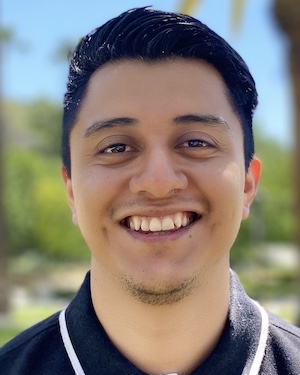Electives During the OTD Program

February 5, 2021
by Daniel
This Fall I was feeling burnt out towards the end of the semester. It was my first OTD semester with classes being virtual and it was my first time being the only OT at my site (primary care clinic). Many times, I was just trying to keep up with my assignments and residency demands. During the month of October, I began looking at what classes I would be taking for the Spring semester, but it was all just too stressful, and I kept pushing it back. My bi-weekly check ins with my faculty mentor and clinical preceptor helped with brainstorming ideas for potential electives to take in the Spring. The idea of getting to choose courses that interest me and plan my own schedule sounded refreshing. I began to look for electives outside of the OT department since I’ve never had the opportunity to take a class in another department.
Taking the advice from my check ins and further understanding the needs of my residency population, I decided to look for electives in gerontology, policy, and pain medicine under the Keck School of Medicine. Eventually, I came across several exciting opportunities to take as electives but not enough units because of the 2 additional elective units I took during the Master’s program. Remember that during the OTD program you can take 4 units of electives (unless you took extra elective units as a USC Master’s student). For students starting their OTD in the fall, in the Spring semester you will also be taking OT 621: Occupational Therapy Leadership: Contemporary Issues (4 units).
Since the beginning of my residency training our focus has been supporting clients with uncontrolled diabetes and hypertension. I also had the opportunity to provide short consultations, with one of the highest requests being for chronic pain. Clients on our active caseload will often request support with pain management as well due to diabetes complications such as neuropathy and other comorbidities that cause pain, making it harder for them to engage in their health management and daily occupations. Given this need and while doing further research, I decided I wanted to use my 2 elective units to learn more about pain and better support my clients. After reaching out to Keck faculty to get clearance for pain medicine courses, I enrolled in PAIN-704: Pain and Society: Epidemiology and Cultural Issues and PAIN-720: Physical and Occupational Therapies. PAIN 704 is a course focused on exploring societal issues related to pain and pain management such as culture, ethnicity, caregiving, social and psychological factors. PAIN 720 is a course focused on discussing different OT and PT techniques to assess and treat chronic pain.
The first week of January I had a check-in with Dr. Sarah Bream, our OTD Program Director. During our meeting I shared with her my desire to take MDED-511: Immigrants, Illness, and Narrative Medicine (4 units), but not having enough units. MDED 511 is a course that examines immigrant experiences in the U.S. through the lens of narrative medicine, aimed to deepen students’ understanding of critical issues affecting immigrants in the U.S. and develop skills to better serve immigrant communities and populations in healthcare and other social services. I shared with her my passion to increase my knowledge and skills to better serve immigrant communities during my residency and in my career. Dr. Bream was very receptive of my ideas and even provided additional advice to work on for my OTD portfolio. She shared with me that on a case-to-case basis, exceptions could be made to substitute OT 621 with another course. I was really surprised but excited to hear this because that meant I could take the MDED 511 course. I truly appreciated her help with problem solving, finding a way to shape my OTD experience, and taking care of the necessary paperwork to make the change.
I am now three weeks into my Spring semester, and I am feeling refreshed (after Winter Break), more confident in my clinical skills, and looking forward to my electives expanding my knowledge. I wanted to share my experience choosing electives during the OTD because if you are feeling unsure about what to take or simply don’t have enough units to take certain courses, I encourage you to reach out to Dr. Bream, your faculty mentor, classmates, the student ambassadors, or even former students because unless you ask, you may not know about the different ways that you can customize your learning experience.
⋯
Next by tag Classes ⟩
⋯





